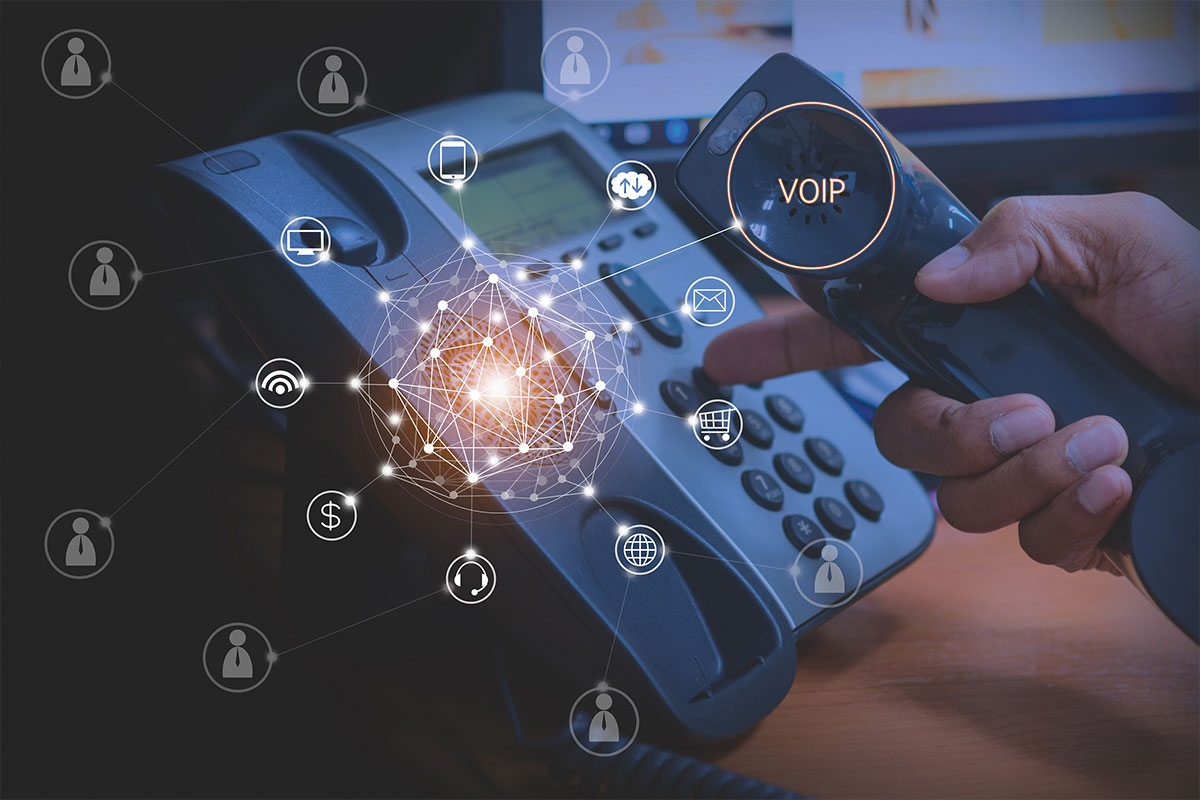
Choosing the right business phone system for your business can be a complex process and without proper guidance, you may end up building the wrong type of system. A proper phone system is a critical investment for businesses providing customer support, conducting sales calls, and handling internal communications. An office phone system is no longer a big investment for businesses, with the current advancements in cloud computing much of the expensive hardware is outsourced to third parties and you only pay for your physical phone units and a small monthly rate for the service.
When considering options for your business phone system, it's important to be familiar with the different options available to you. We will discuss the following system in this article: PBX, IP PBX, and VoIP systems.
PBX
A PBX system operates through traditional phone lines, and you keep and maintain a PBX server in your office. This technology is used as the traditional method of business phones and is a very stable method of conducting phone calls.
IP PBX
An IP PBX system will handle your communications through an internet connection rather than a traditional phone line and this is called Voice over Internet Protocol (VoIP). An IP PBX system may have a server hosted onsite, or accessed remotely. An office will use SIP-enabled phones to place calls, and these are hardline connected into your phone lines. The problems that may arise with an IP PBX system is that during internet connection issues your phone service could not work since it relies on the internet to conduct calls.
Virtual VoIP
A Virtual business phone system will work without hardware, your phone calls will be conducted through a browser, app, or on an application on your computer. This eliminates the need for traditional phones or SIP phones. Since this system is virtual than you will be using third-party servers to handle your inbound and outbound calls. The benefit of this system is that third party providers will handle maintenance and ensuring your system is working correctly.
Consider the following information
When deciding the right business phone system for your business it is important to consider your goals, your current phone usage and the future of your business. A professional Enterprise Voice/Data Communications Solutions Provider will consult with you and offer the best solution that is custom tailored to your business.
The first step is to review your current phone system, for example if you are a new business or looking to upgrade an existing system. When selecting a system for your company its important to consider what each type of phone system requires to get started and maintain. A new business may find a VoIP phone system more beneficial because of the easy setup and little to no hardware requirements.
A business that has a heavy call volume may be better suited for a stable analog connection, this will ensure your system is working even if the internet goes down. This system can also have a digital line available if hardware issues arise, this will ensure your communications system is working at all times. Traditional business phone system such as PBX include extra costs when adding or removing users because you need to purchase more equipment, at times you may have more equipment than needed. VoIP phone systems are subscription based and can scale up or down to meet your needs.
When planning to purchase a business phone system your budget will be important in deciding the right phone system. A PBX system will have high upfront costs for hardware, licensing and installation. An IP PBX system will have fewer costs depending on how much hardware your system requires onsite. PBX and IP PBX system have maintenance costs associated with them as well including software updates, equipment maintenance, and replacing old hardware to name a few.
A VoIP phone system often has no upfront or maintenance costs, instead providers charge a per-user-per-month subscription rate. VoIP requires a decent internet connection with high bandwidth to support multiple users conducting calls simultaneously.
Talk with an Intellicom professional today to pick the right phone system for your business!